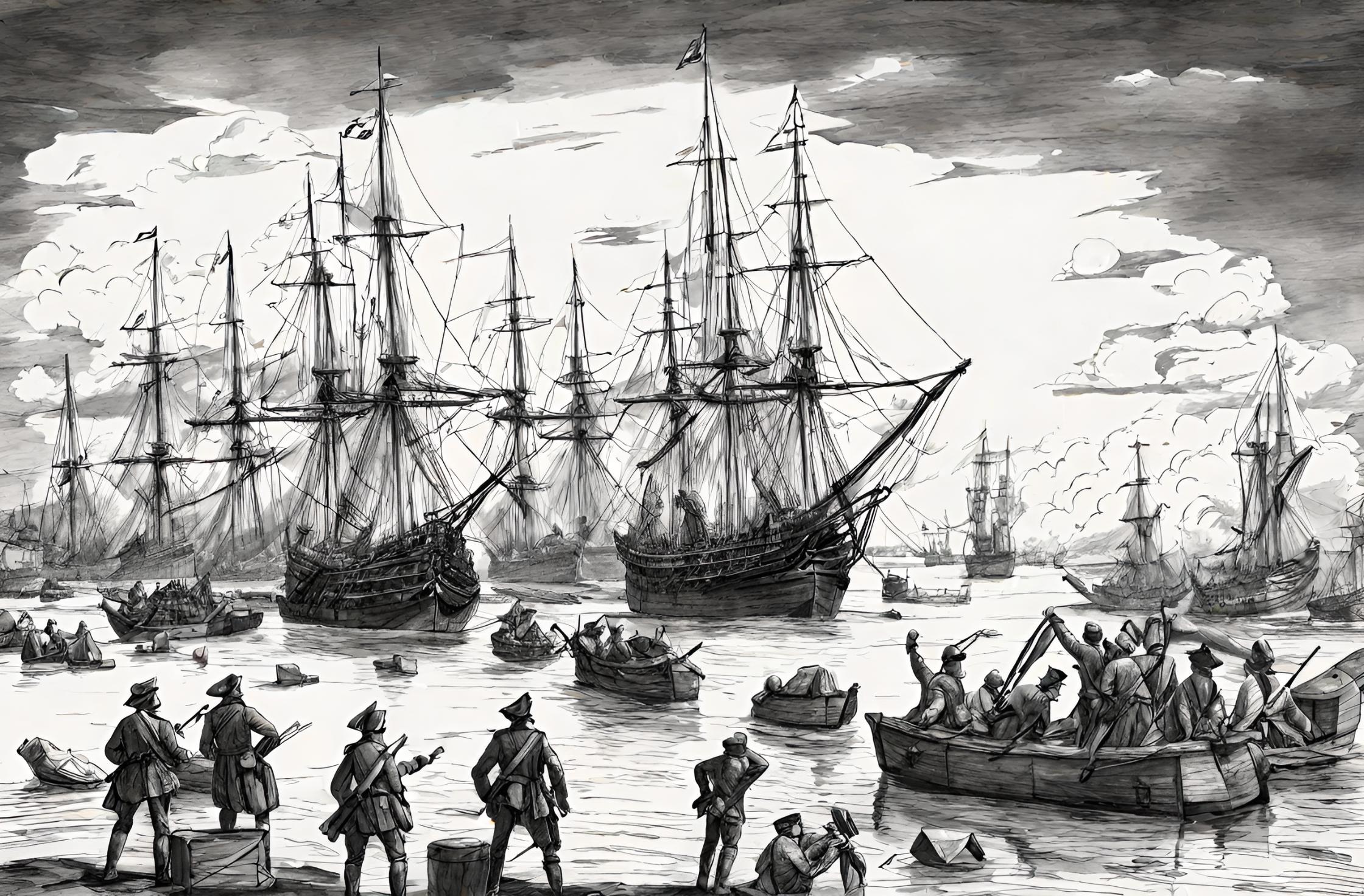Flashback to July 14
American History

The American Revolutionary War was a pivotal moment in American history that ultimately led to the birth of the United States of America. It was a time when the American colonies sought to break free from the rule of the Kingdom of Great Britain and establish themselves as an independent nation. One significant event that added fuel to the flames of revolution was the closure of the port of Boston, Massachusetts, as ordered by the British government through the Boston Port Act on March 31, 1774.
The Boston Port Act was one of the Coercive Acts, also known as the Intolerable Acts, which were a series of punitive measures imposed on the American colonies by the British Parliament. These acts were a response to the Boston Tea Party, a protest against the Tea Act of 1773, where American colonists dumped British tea into the Boston Harbor.
The Boston Port Act was specifically aimed at punishing the people of Boston for their role in the Boston Tea Party. It ordered the immediate closure of the port of Boston, making it illegal for any ships to load or unload goods at the harbor until the East India Company was compensated for the destroyed tea.
The closure of the port had a severe impact on the economy of Boston and, by extension, the entire colony of Massachusetts. The port of Boston was a vital hub of trade, and its closure meant that merchants and traders were unable to conduct their business as usual. This resulted in a significant loss of revenue and widespread unemployment among the working class.
The Boston Port Act was seen by the American colonists as a direct attack on their economic livelihoods and their rights as British subjects. It further fueled the growing sentiment of discontent and rebellion against British rule. Many in the colonies saw the closure of the port as an abuse of power and a violation of their rights to trade freely.
This event, along with the other Coercive Acts, united the colonies in their opposition to British rule and played a crucial role in galvanizing support for the American Revolution. As news of the Boston Port Act spread across the colonies, solidarity and support for the people of Boston grew. This event also helped to strengthen the resolve of the colonists and push them towards seeking independence from Great Britain.
The closure of the port of Boston was met with resistance and defiance from the people of Boston and the surrounding colonies. They organized boycotts of British goods and established committees to coordinate efforts against the British government. This act of protest and defiance laid the groundwork for future revolutionary actions and united the American colonists in their fight for freedom.
the closure of the port of Boston, Massachusetts, through the Boston Port Act on March 31, 1774, was a significant event that further fueled the flames of the American Revolutionary War. It was a direct response to the Boston Tea Party and aimed to punish the people of Boston for their role in the protest. The closure of the port had a profound impact on the economy of Boston and galvanized support for the cause of American independence. This event played a crucial role in uniting the colonies and pushing them towards seeking freedom from British rule.
We strive for accuracy. If you see something that doesn't look right, click here to contact us!
Sponsored Content

President Franklin Pierce opens…
On July 14, 1853,…

US Treasury begins removing…
On July 14, 1967,…

Lieutenant Colonel Oliver North…
Lieutenant Colonel Oliver North's…

Tape measure enclosed in…
On July 14, 1868,…

The central region of…
On 7/14/1954, the central…

First American national monument…
"Learn about the historic…

